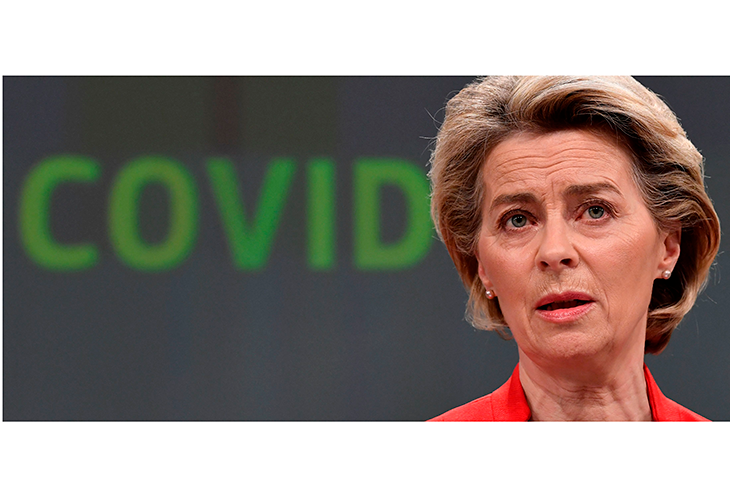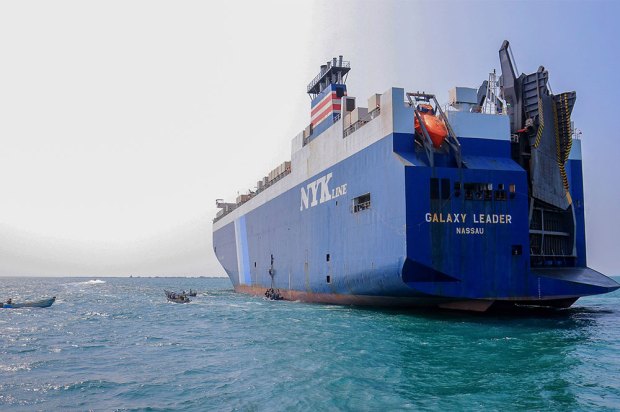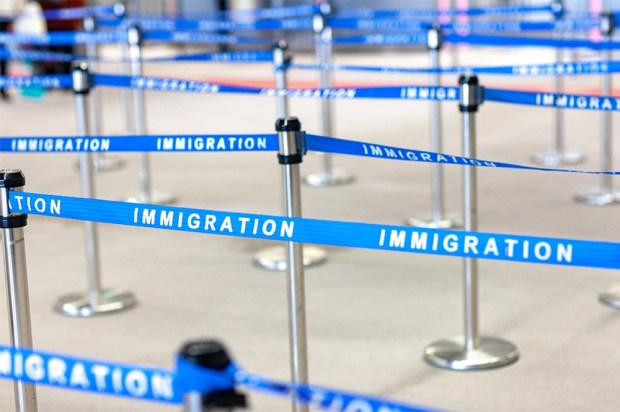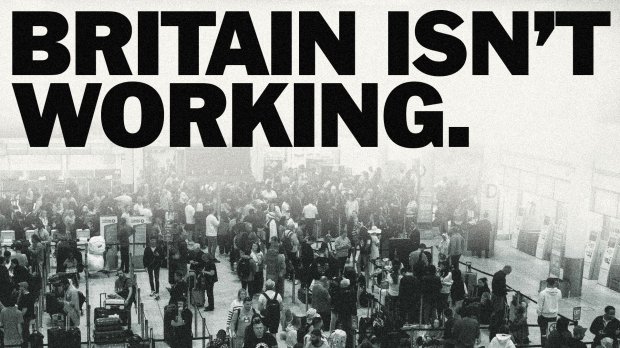During the referendum campaign five years ago, the pro-Brexit side argued that by freeing ourselves from the EU’s native protectionism and over-application of the precautionary principle, Britain could revitalise its economy and democracy. The EU wanted to seize more power, they argued, by taking control of ever greater areas of public life. Remainers thought these fears were exaggerated. They saw in the Leave vote an eruption of nativism.
The EU’s vaccine war, however, could not have better demonstrated the problem of Brussels overreach. While the vaccine programme rolls on in Britain, with more than half of all adults now inoculated, the EU is being drawn ever further down a blind alley of its own making. The European Commission’s threat to ban the export of vaccines to third countries — a move for which it has already granted itself the required powers — has exposed a way of thinking which not only puts lives at risk all across Europe, but also promises to damage inward investment.
It would be very easy for the UK government to succumb to those saying that Britain must respond in kind. The Pfizer vaccine, for example, requires lipids that are manufactured in Yorkshire. The Prime Minister could say to Ursula von der Leyen that if the EU dares to cut off supplies of the finished vaccine, Britain will block the export of the raw materials. The result would be that both sides would diminish their vaccine supply. Von der Leyen may even want Boris Johnson to issue this warning, in order to give her the excuse of provocation.
It is a temptation Johnson should resist. There is nothing to be gained from threatening to jeopardise vaccine production. It would be the equivalent of mutually assured destruction during the Cold War. There is everything to be gained, however, from refusing to be drawn into a trade war and by standing up for the free movement of goods and capital.
The events of the past week will not have been lost on pharmaceutical companies, nor on manufacturers more generally. Ursula von der Leyen has sent a very powerful message: if these companies invest in the EU, there will always be a risk that the EU may seize control of their factories, using powers intended only to be used in times of war. As long as the UK government does not engage in retaliatory language, it will send out the opposite message: come and invest in Britain and we will respect your freedom to trade. We will not block exports or imports and, assuming your business is legal, we will not obstruct you in fulfilling your contractual obligations to international customers.
Britain is so far ahead of the EU in its vaccination programme that it can afford to be generous. Shortly, all over-fifties and vulnerable people below that age will have had the chance to have the jab — a proportion of the population which to date has accounted for 99 per cent of all Covid deaths. Over the summer, more vaccines will become available as those developed by Moderna, Novavax and Johnson & Johnson start to arrive.
It was always part of the UK strategy that surplus vaccines would be donated to the developing world through the vehicle of Covax. There is no reason why we should not also start diverting some UK-made vaccines to protect vulnerable groups in some European countries — perhaps starting with Poland and Ireland. These are countries with which many UK residents have familial ties.
The B117 Covid variant, first identified in Kent, is now making its way across Europe, with many countries suffering a surge similar to that seen in Britain in December. While Covid deaths in Britain fall below 100 a day, the toll is 2,000 a day in Europe. Our neighbours need our help. They are dying in their thousands for want of a vaccine that we have in such abundance that we are giving it to the young, healthy and (in many cases) the already immune. There is, quite simply, more that we can do.
For example, look at the vaccination rates for those in their seventies. In England, 98 per cent have been vaccinated. The figure is 33 per cent for Poland, 17 per cent for Ireland and just over 3 per cent for Italy. This is something we should consider. We are the authors of our own vaccine fortune: Kate Bingham’s taskforce and the superb UK distribution effort have seen to that. But once we have covered our own over-fifties, might we think about our friends abroad? And at a time of crisis, put politics to one side? Even if our gesture is rejected, it’s important that it is made.
The world is looking to see what kind of a nation Britain will turn out to be following Brexit. The answer will come in the decisions we make now. We should not live up to the caricature of an island ready to pull up its drawbridge, but instead present ourselves as an open, free-trading country. We should also be a steadfast ally to our neighbours. The Prime Minister has spent years talking about ‘Global Britain’. This is his opportunity to show the world what he means.
Got something to add? Join the discussion and comment below.
Get 10 issues for just $10
Subscribe to The Spectator Australia today for the next 10 magazine issues, plus full online access, for just $10.
You might disagree with half of it, but you’ll enjoy reading all of it. Try your first month for free, then just $2 a week for the remainder of your first year.














Comments
Don't miss out
Join the conversation with other Spectator Australia readers. Subscribe to leave a comment.
SUBSCRIBEAlready a subscriber? Log in